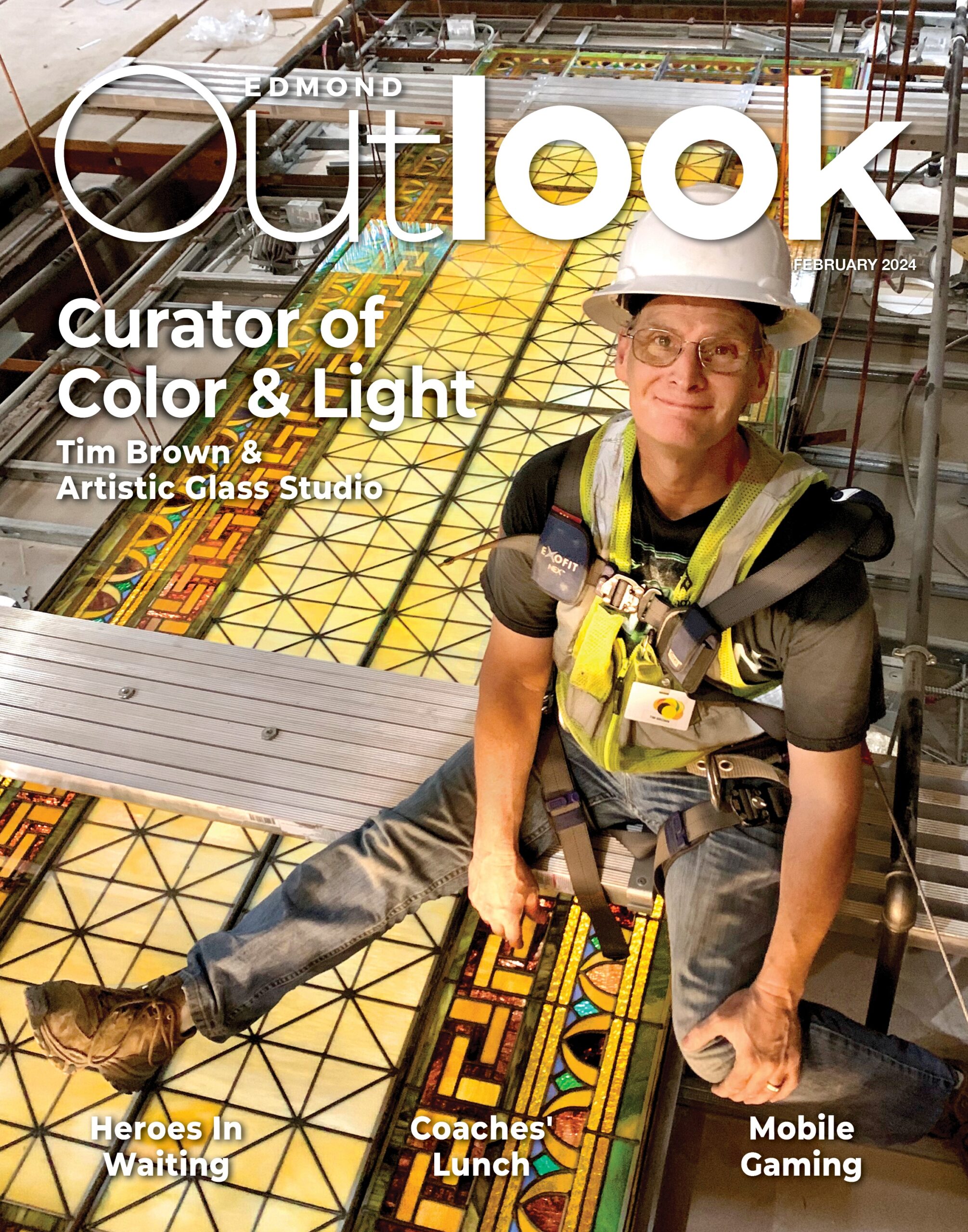A Moment In Time
Repairs, Rebuilds and the Mystery of 8:22
Mike Gilliam has a grasp on his time. He is a horologist — he repairs and restores clocks.
In years past, people were licensed in horology, the study of clocks and watches. Although some schools still teach clock repair, a person must train under another horologist to become a true clockmaster. Gilliam learned his trade from a mentor in Oklahoma City.
“He handed me a clock and told me to take it apart and work on it until I could put it back together,” he said. Gilliam was to do this repeatedly, until he learned all the workings of the clock and could put it together quickly. It was the first of many clocks that he would dissect and repair.
Today, Gilliam’s shop, A Moment In Time, is filled with dozens of clocks that he has repaired. The walls are covered with cuckoo clocks, striking clocks and chiming clocks. He even has a ship’s bell clock and much more. He tests them for several days after repair before the owners pick them up. Visitors can rarely walk in and out of his shop without hearing a chime, music, striking sound or cuckoo.
Gilliam said he is mechanical by nature and enjoys taking things apart and putting them back together. It is this trait that gives him the patience to work on all types of clocks. But no digital clocks are found in his shop. All have working parts. Gilliam gets calls from all over the state from people seeking his expertise. Many need in-home service for grandfather clocks, so he often makes house calls.
Gilliam first opened his shop in downtown Edmond in 1985, although he had been working on clocks for years. He started by delivering and servicing grandfather clocks while learning the skills needed for repair. He gradually began working on the clocks themselves under the tutelage of his mentor.
After 25- plus years in the business, Gilliam said he is still learning and finds each day interesting, never knowing what type of clock he will encounter. Many older clocks no longer have parts available to purchase, so Gilliam searches through boxes of old parts he has saved and, if necessary, actually makes the missing part.
“You have to be able to make parts in this business,” he said. “You can’t just call up a parts store for a clock that is 100 or 200 years old.”
But those repairs are some of his favorites. “I enjoy making something run that’s 100 years old and may not have run for 50 years,” Gilliam said. If a clock has all its original parts and it is mechanical, Gilliam can fix it, no matter the age. The question is whether it is cost effective to do so. That decision lies with the consumer. However, more and more old clocks are in demand. “Old clocks that used to sell for $5 now sell for $300,” Gilliam said. Clocks are very collectible and many antiques are worth thousands of dollars.
One of his most interesting pieces was an American Colonial Clock brought into his shop, without the top or bottom of the case. “She brought in the middle of a grandfather clock,” Gilliam said. “It would be as if the top and bottom part of the case had been cut off.” But the client had a few pieces of the movement and a dial, so Gilliam took what parts she had. He then designed and made the intricate, missing parts to get the movement working, keeping it as original as possible.
Having grown up helping in his father’s furniture repair business, and because he had worked on long clock cases, Gilliam was able to calculate the original size of the clock and build a new top and base. He matched the wood and structural design by using pictures brought in by the client as well as matching the style to the dial, or face, of the clock. He worked more than six months on the piece.
The clock had its own story to tell. Benjamin Franklin once loaned money to a friend who wanted to make clocks. That friend was William Claggett, who built several clocks, including this piece, which was made around 1725.
Although he works throughout the state, Gilliam said he is content to keep his shop in Edmond and has little desire to travel. However, after working on cuckoo clocks for so long, Gilliam would like to visit Germany one day, where nearly all cuckoo clocks are made.
Just as each mechanical clock is unique, so is the sound that accompanies it. Striking clocks do exactly that — strike on the hour and half-hour. The chiming clock normally chimes every quarter hour, with strikes following the chimes on the hour. Most play Westminster chimes. A cuckoo clock generally sounds on the half-hour and hour and also will play music if it has a music box.
Gilliam also offers lots of clock trivia. He said reputable clock companies and major clock manufacturers will almost always have the clock set at 8:22 or 8:23 when advertising in magazines or clock catalogs. It is said to be the time that Abraham Lincoln was assassinated. It is also thought that even old clocks that did not run but were on display were also set at that time out of respect for the late president.
To contact Mike Gilliam, call 405-348-8891 or drop by his shop at 701 W. Edmond Road.


